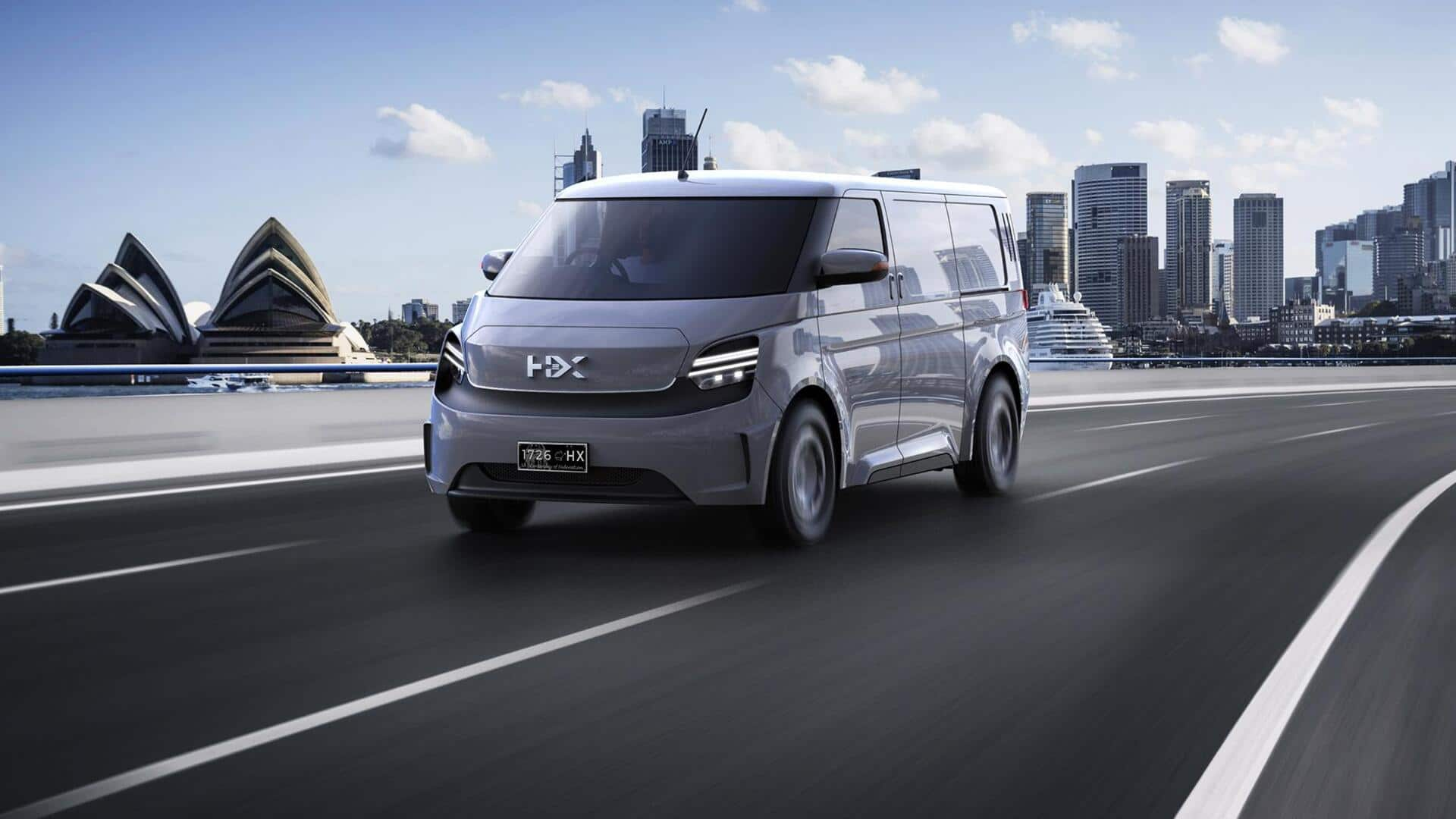
Best features of KTM's hydrogen fuel cell van
What's the story
KTM, a renowned Austrian automaker, has teamed up with Australian firm H2X Global to create a hydrogen fuel cell van, the Darling. It leverages KTM's expertise in lightweight design. The collaboration aims to develop a groundbreaking lightweight platform called the "Smart chassis" for hydrogen fuel cell vehicles, including cars, trucks, and buses. The first product to result from this partnership is a hydrogen-powered version of H2X Darling, a mid-sized van comparable to the Ford Transit and Vauxhall Movano.
Chassis
Both brands are developing 'Origami' chassis for light commercial vehicles
Under this agreement, KTM and H2X will collaborate on a novel "Origami" chassis for H2X's light commercial vehicles. This unique design is described as being "easier to produce and maintain and way more flexible for variants than a conventional chassis." H2X asserts that this new platform will improve the sustainability of its manufacturing processes while lowering the cost of tooling investment. It is typically a major expense in sheet metal forming processes.
Prototype
Hydrogen Professional modular van prototype revealed
The Hydrogen Professional Van is in the early phases of development. H2X states that it has a payload capacity of 3,500kg, can tow up to 2,550kg, and boasts a range of up to 400kg. Technical specifics regarding the vehicle have not been disclosed, nor has KTM's exact involvement in the project. However, Andy Schumacher, technical project manager at KTM Technologies, expressed enthusiasm about partnering with H2X Global, acknowledging the enormous potential of hydrogen technology.
Future
Growing interest in hydrogen fuel cells for commercial vehicles
Hydrogen fuel cells are attracting attention from light commercial vehicle manufacturers due to their long range and quick refueling times. Stellantis offers a variety of mid-sized fuel cell vans in Europe. Several start-ups, including British-Canadian company First Hydrogen, plan to bring their own versions to market. This development comes on the heels of Toyota's recent announcement prioritizing fuel cell technology for commercial vehicles after experiencing limited success with its Mirai FCEV passenger car.